SUMMARY
This is AI generated summarization, which may have errors. For context, always refer to the full article.
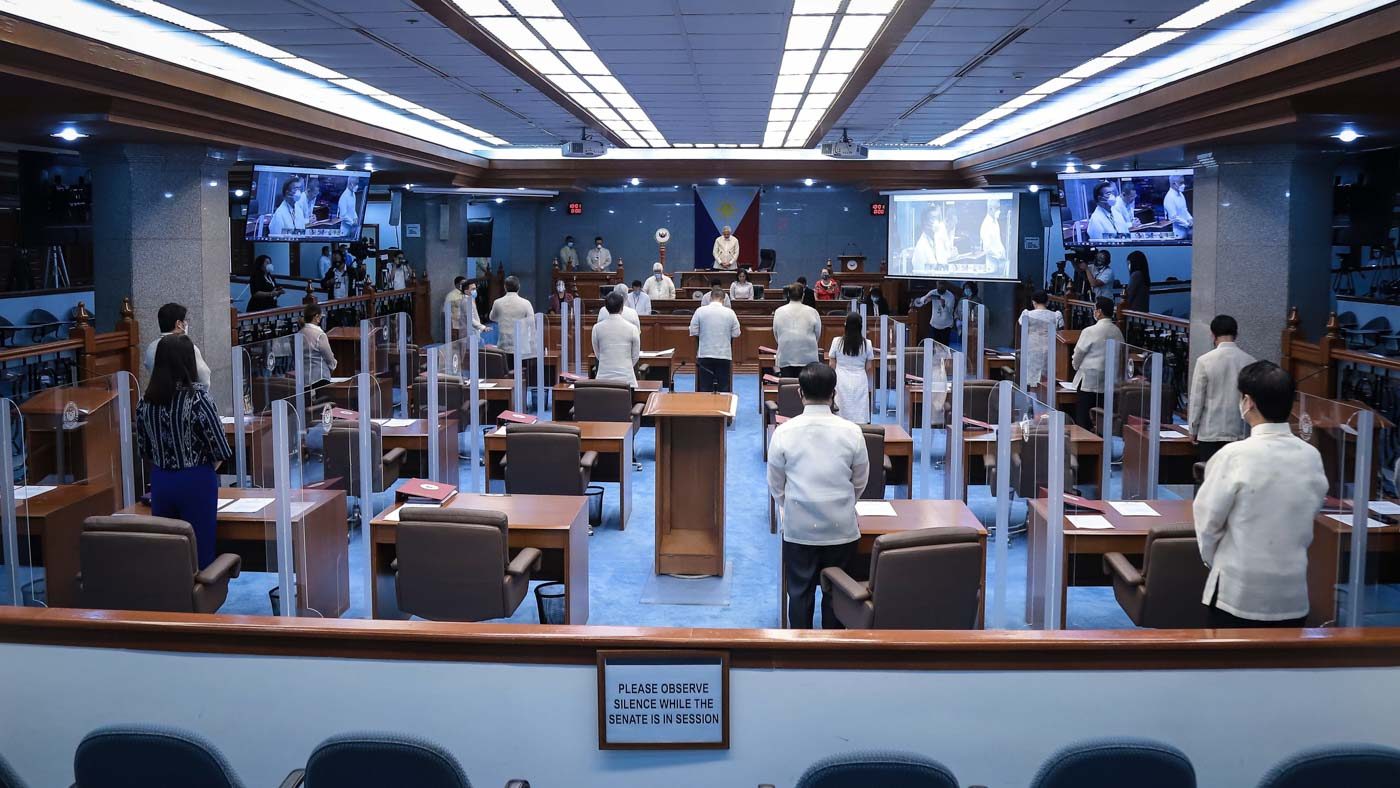
The Senate on Tuesday, July 28, passed on 3rd and final reading its version of a bill that extended the validity of special powers granted to President Rodrigo Duterte in response to the coronavirus pandemic.
In its first plenary session after Duterte’s State of the Nation Address, the Senate approved Senate Bill 1564 or the Bayanihan to Recover as One Act. It was dubbed “Bayanihan 2,” as it supplemented the first Bayanihan to Heal as One Act, which was enacted on March 25.
The Bayanihan 2 bill retained until September 30 the 30 special powers Congress granted Duterte through the first Bayanihan law, which lapsed on June 5. Bayanihan 2 also allotted P140 billion as a “standby fund” for the government’s pandemic response and economic recovery efforts.
Below is a breakdown of the measure’s major allocations:
- P10 billion – procurement of RT-PCR testing and extraction kits, supplies, and enhancement of the Department of Health’s (DOH) capacities;
- P15 billion – cash-for-work program for the poor, and the Tulong Panghanapbuhay sa Ating Disadvanatged/Displaced Workers (TUPAD) program of the Department of Labor and Employment (DOLE);
- P17 billion – DOLE’s programs on unemployment, including involuntary separation assistance for freelancers, self-employed workers, and displaced overseas Filipino workers (OFW);
- P50 billion – government financial institutions: Landbank (P30 billion), Development Bank of the Philippines (P15 billion), and the Philippine Guarantee Corporation (P5 billion), for low-interest loans to micro, small, and medium enterprises;
- P17 billion – the Plant, Plant, Plant agricultural program, including cash subsidies and interest-free loans for farmers;
- P17 billion – Department of Transportation programs for the provision of interest rate subsidies and temporary livelihood to displaced transport workers;
- P10 billion – Department of Tourism programs to assist tourism-related businesses hit hard by the pandemic.
Besides these, Bayanihan 2 also provides P3 billion for assistance to state universities and colleges, specifically for the development of “smart campuses” to implement flexible learning methods.
The Technical Education and Skills Development Authority will receive P1 billion for its “training for work” scholarship program, and its “special training for employment” program for displaced workers and OFWs.
Pangilinan alone voted ‘no’
Bayanihan 2 got affirmative votes from 22 senators. Senator Leila de Lima, still detained over illegal drug charges, was unable to vote. Only Senator Francis Pangilinan voted in the negative.
“Clearly, compared to all other countries in the region save for Indonesia whose population is nearly 3 times larger than ours, we have failed to stop the spread of the disease and have been unable to meet our own imposed targets and deadlines for mass testing, contact tracing, and isolation,” Pangilinan said, explaining his vote.
The opposition senator criticized Health Secretary Francisco Duque III, saying, “his incompetence and, worse, his being linked to corruption have been condoned and left unpunished.”
“We vote ‘no’ to additional funding specified in the Bayanihan 2 because we believe that Secretary Duque ought to be fired before billions more are allowed to be released to the DOH,” Pangilinan said.
Amount too small?
The other senators expressed reservations even as they voted to approve the measure. They said P140 billion was too small to address the pandemic nationwide.
The amount is what the government regularly spends within 13 days, Senate President Pro Tempore Ralph Recto pointed out. He said the Executive should ask for more funds if necessary.
Recto and Senator Imee Marcos looked ahead to the upcoming budget season to allocate more funds for the government’s pandemic response.
“Napakakuripot naman nitong Bayanihan 2 (This Bayanihan 2 is so stingy),” Marcos said.
Senator Richard Gordon, also chair of the Philippine Red Cross, said the measure is essentially a “best efforts bill.” He noted that rapid tests for the coronavirus are unreliable, and said the government is better off spending for RT-PCR or swab test kits, which are more reliable even if they are more expensive.
The push-and-pull between the lawmakers and the Department of Finance (DOF) when crafting Bayanihan 2 centered on the availability of government revenue. Lawmakers from the Senate and the House of Representatives wanted a much larger amount for the government’s pandemic response, but the DOF could only commit P130 billion at the time.
Bicam to settle final amount
The Senate would have passed Bayanihan 2 before it adjourned its previous session on June 4 if Duterte had certified the measure as urgent. The chamber had then just passed the bill on 2nd reading, and it needed that certification from the President to waive the mandatory 3-day interval between the 2nd and 3rd readings of a bill.
Malacañang did not call on Congress to hold special sessions while both chambers were on recess either, so Bayanihan 2 had to wait for regular sessions to resume.
Senate President Vicente Sotto III said in a media interview that the Senate would prioritize measures to soften the pandemic’s blow on the economy – specifically recovery and stimulus packages for industries and government-controlled corporations.
In the case of the more immediate Bayanihan 2 bill, the Senate and the House differ on the standby fund – the House allotted P162 billion in its version of the measure.
Sotto said the chambers would finalize the amount at the bicameral conference, as soon as the House passes its version of the bill. – Rappler.com
Add a comment
How does this make you feel?

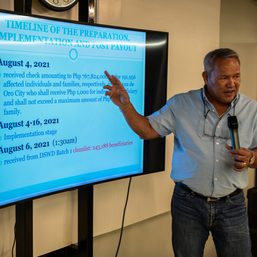
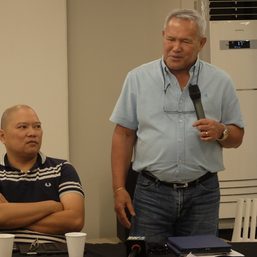
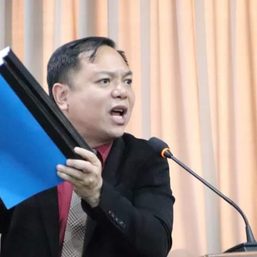
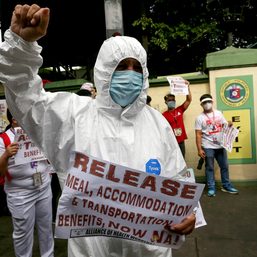

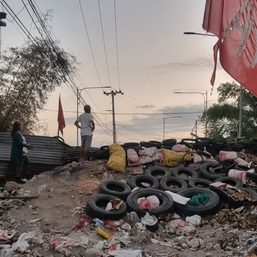
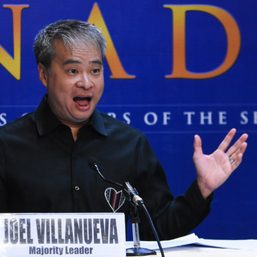
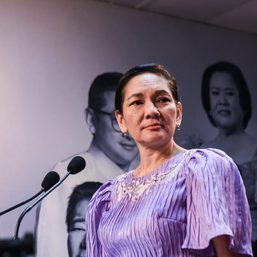
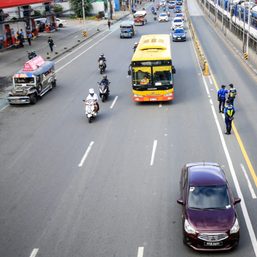
There are no comments yet. Add your comment to start the conversation.